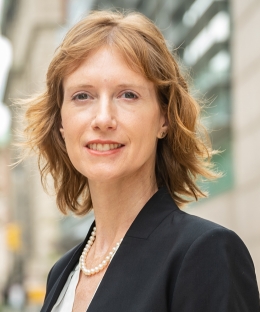
Kate Andrias is the Patricia D. and R. Paul Yetter Professor of Law at Columbia Law School.

Benjamin Sachs is the Kestnbaum Professor of Labor and Industry at Harvard Law School and a leading expert in the field of labor law and labor relations. He is also faculty director of the Center for Labor and a Just Economy. Professor Sachs teaches courses in labor law, employment law, and law and social change, and his writing focuses on union organizing and unions in American politics. Prior to joining the Harvard faculty in 2008, Professor Sachs was the Joseph Goldstein Fellow at Yale Law School. From 2002-2006, he served as Assistant General Counsel of the Service Employees International Union (SEIU) in Washington, D.C. Professor Sachs graduated from Yale Law School in 1998, and served as a judicial law clerk to the Honorable Stephen Reinhardt of the United States Court of Appeals for the Ninth Circuit. His writing has appeared in the Harvard Law Review, the Yale Law Journal, the Columbia Law Review, the New York Times and elsewhere. Professor Sachs received the Yale Law School teaching award in 2007 and in 2013 received the Sacks-Freund Award for Teaching Excellence at Harvard Law School. He can be reached at [email protected].
This post was originally published on the Law and Political Economy (LPE) Project Blog.
Readers of this blog need no reminder of the pervasive inequalities that define American society. Nor do readers need to be convinced that a perverse concentration of wealth has had profoundly corrosive effects on the viability of American democracy. In a recent article published in the Yale Law Journal, we argue that the traditional approaches to combatting political inequality—campaign finance reform, voting rights, participatory governance—do not go far enough, and we ask what else might be done to redress the fundamental power imbalances that define our politics. We argue that the key lies in building countervailing power among poor and working-class people, and that law can and should be used to facilitate organizing by the poor and working class: not only as workers, but also as tenants, debtors, welfare beneficiaries and others.
The beneficial effects of countervailing, mass-membership organizations are well known to theorists and researchers of democracy. Put simply, such groups increase political equality by building and consolidating political power for the nonwealthy, thus serving as counterweights to the political influence of the rich. Over the past few decades, however, there has been a decline in broad-based, mass-membership organizations of low- and middle-income Americans, particularly unions but other poor people’s organizations as well. This decline in countervailing organizations has exacerbated the political distortions caused by massive political spending by the wealthy.
The COVID-19 pandemic and financial crisis of 2008 have led to an upsurge in movements by low- and middle-income Americans, particularly among workers, tenants, and debtors,while endemic violence against Black communities has led to widespread organizing around issues of racial justice. These movements have great promise but face obstacles in translating mobilization into robust and lasting political power. A pressing task, therefore, is to determine how law might facilitate the creation and development of organizations that can countervail the power of economic elites.
We start from the premise that the robustness of mass-membership organizations should be understood as a problem both of and for law. The shape of civil society and organizational life is already a product of legal structures and rules. From antitrust law to corporate law, from labor law to tax law, organizations are shaped by the legal ecosystem in which they exist. And although we recognize that law has more often been a tool of oppression, rather than empowerment, of poor and working-class movements, alternative legal regimes that encourage the growth of social-movement organizations of the poor and working class are possible.
In analyzing how legal and institutional reforms could facilitate a different picture of organizational and political life in the United States, we draw from both the successes and the failures of labor law—the area of U.S. law that most explicitly and directly creates a right to collective organization for working people. We also move beyond that context to sociology literature considering under what conditions social movements become a force for social and political change.
In brief, we argue that a legal regime designed to enable organizing among poor and working-class people should have several components:
- First, the law should grant collective rights in an explicit and direct way so as to create a “frame” that encourages organizing.
- Second, the law should provide for a reliable, administrable, and sustainable source of financial, informational, human, and other relevant resources.
- Third, the law should guarantee free spaces—both physical and digital—in which movement organization can occur, free from surveillance or control.
- Fourth, the law should remove barriers to participation, both by protecting all those involved from retaliation and by removing material obstacles that make it difficult for poor and working people to organize.
- Fifth, the law should provide the organizations with ways to make material change in their members’ lives and should create mechanisms for the exercise of real political and economic power, for example by providing the right to “bargain” with the relevant set of private actors and by facilitating organizational participation in governmental processes.
- Finally, the law should enable contestation and disruption, offering protections for the right to protest and strike across domains.
Inherent in this project are several limitations. First, we acknowledge that some factors undoubtedly critical to successful organizing are beyond the reach of our proposals. For example, broad political and economic developments in society, as well as internal leadership capacity within organizations, can be essential to movement building but are not easily affected by legal regulation.
Second, we recognize that broad-based political movements of the poor and working-class—such as labor parties—can play a critical, equalizing role in politics. Yet, for purposes of this project, we have chosen not to focus on how to build that kind of organization. Rather, we focus on reforms that enable organizing in context: that is, within particular structures of authority and resource relations.
Third, some critics might worry that our proposals are likely to be more damaging than helpful to social movement organizations. On this account, formal structures facilitated by law are necessarily deradicalizing and inimical to social change. We reject that view, as history demonstrates that organization, as opposed to more amorphous configurations of insurgency, is essential to achieving lasting change.
Fourth, our focus is on how law can facilitate organizations of working-class and poor Americans—not on how law could be designed specifically to enhance the political power of communities of color, nor on how law could encourage the formation of interest groups generally. The first concern could not be more critical. Just as our government is disproportionately responsive to the wealthy, it is also disproportionately responsive to white people,and the crisis of structural racism is perhaps the most acute we face as a nation. As such, a program for building political power among communities of color is just as necessary as a program for building power among workers and the poor.
But it is also true that our focus on working and poor Americans ought to, in practice, amount to a program for building power among and by communities of color. This is not the exclusive reach of our proposals, and continued attention must be paid to ensure that racial inequities do not the infect the political organizing we aspire to enable. Yet because people of color are overrepresented in the sectors of the population that we do address—low-income workers, tenants, government-benefits recipients, debtors—these communities would likely benefit from the success of our proposals. As to the second concern, while a more expansive civil society may bring a host of benefits, including greater social cohesion and civic education, our current focus is on building organizations that can serve as a countervailing force to the extraordinary power of economic elites in our political economy.
Finally, we recognize that our proposals will be difficult to enact, given the political inequality that motivates the project in the first place. Yet the obstacles are not insurmountable. Government tends to respond to the concerns of poor and working-class voters when those concerns become particularly salient, and, as illustrated by the massive economic stimulus package Congress just enacted, the COVID-19 pandemic has made the economic plight of poor and working-class Americans highly politically salient. The resurgence of organizing among workers, tenants, and debtors that has occurred in response to the pandemic—and that has highlighted the inequities of how the pain of the pandemic is distributed—has only increased this salience. Indeed, a huge majority of voters now say they would prefer the federal government take “major, sweeping action”—rather than “modest action”—to address the economic impact of the pandemic. Moreover, the federalized nature of our government creates openings for legislative change at the state and local level that can, in turn, increase the likelihood of reform in other localities and at the national level. Some such reforms are already underway in progressive states and cities.
This is not to suggest that enacting laws to facilitate organizing among the poor and middle class will be easy. The kinds of laws we propose would face intense opposition as those who currently wield unrivaled power will vigorously object to measures aimed at enabling their power to be countervailed. But it it also the case that the urgency for overcoming these objections has never been greater.
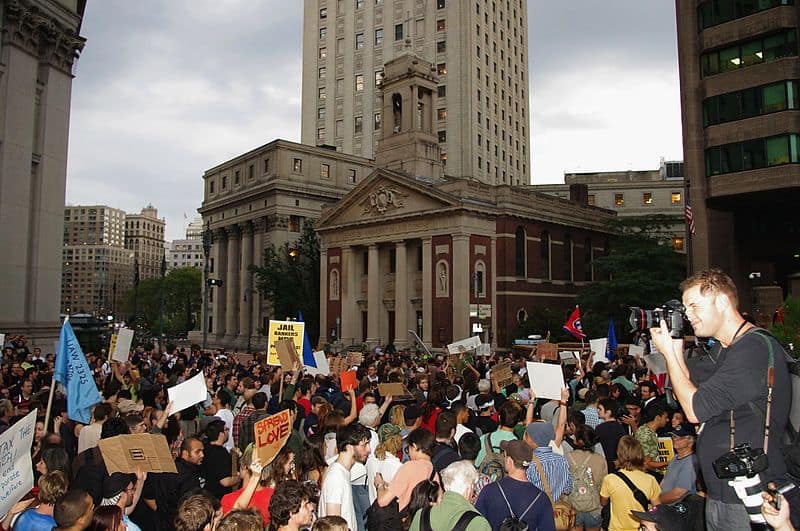
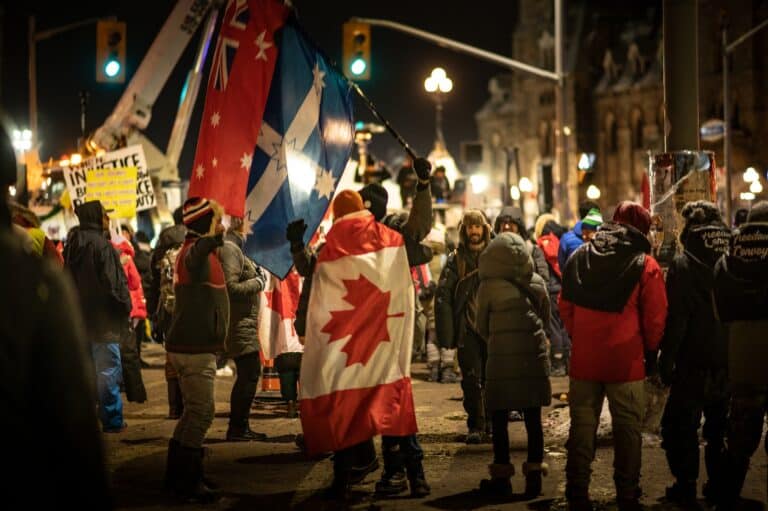

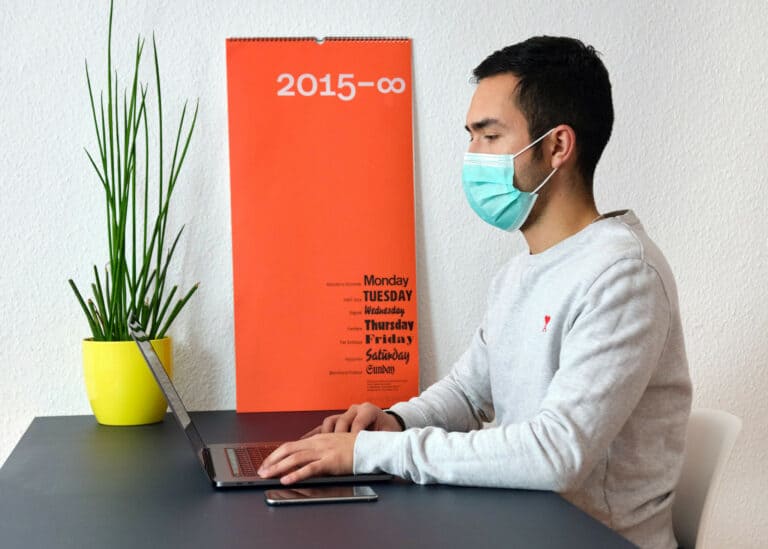
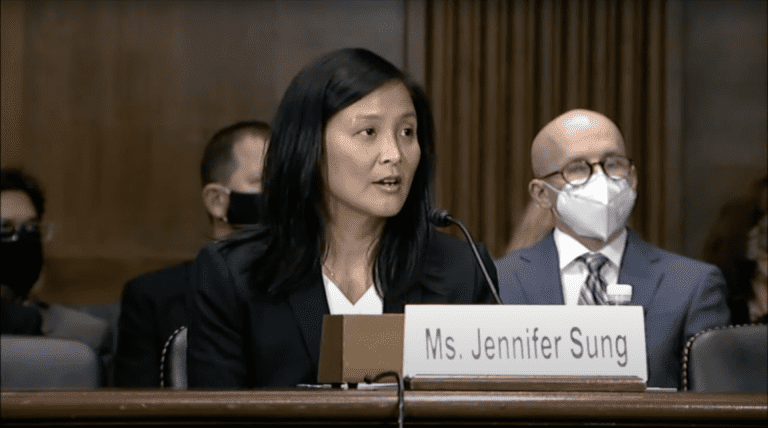





Daily News & Commentary
Start your day with our roundup of the latest labor developments. See all
July 11
Regional director orders election without Board quorum; 9th Circuit pauses injunction on Executive Order; Driverless car legislation in Massachusetts
July 10
Wisconsin Supreme Court holds UW Health nurses are not covered by Wisconsin’s Labor Peace Act; a district judge denies the request to stay an injunction pending appeal; the NFLPA appeals an arbitration decision.
July 9
the Supreme Court allows Trump to proceed with mass firings; Secretary of Agriculture suggests Medicaid recipients replace deported migrant farmworkers; DHS ends TPS for Nicaragua and Honduras
July 8
In today’s news and commentary, Apple wins at the Fifth Circuit against the NLRB, Florida enacts a noncompete-friendly law, and complications with the No Tax on Tips in the Big Beautiful Bill. Apple won an appeal overturning a National Labor Relations Board (NLRB) decision that the company violated labor law by coercively questioning an employee […]
July 7
LA economy deals with fallout from ICE raids; a new appeal challenges the NCAA antitrust settlement; and the EPA places dissenting employees on leave.
July 6
Municipal workers in Philadelphia continue to strike; Zohran Mamdani collects union endorsements; UFCW grocery workers in California and Colorado reach tentative agreements.